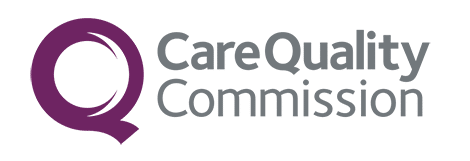ILM Level 5 Certificate in Effective Coaching & Mentoring
Context
The Care Quality Commission (CQC) is the independent regulator of health and social care in England, they work to make sure health and social care services provide people with safe, effective, compassionate, high-quality care. The CQC formed in 2009, bringing together the Health Care Commission, the Commission for Social Care Inspection and the Mental Health Act Commission. The CQC is now responsible for monitoring, inspecting, and regulating such services and ensuring that providers are acting with regards for a strict set of values and objectives, which cover a number of organisational facets, including governance, complaints, staffing (fit for purpose, criminal records etc.), premises and equipment, food and drink, safety, consent and the assurance of dignity and respect.
Requirement
In February 2019, Eliesha was awarded a contract to deliver the ILM Level 5 in Effective Coaching and Mentoring through a competitive tender exercise. The initial requirement was to deliver training and assessment to enable approx. 100 employees to achieve the qualification, at four locations across England: Newcastle, Leeds, Birmingham and London.
The driving objectives for the programme were to ensure participants developed their ability to:
- Understand the roles and responsibilities of an internal workplace coach
- Use tools, models and techniques to facilitate coaching
- Plan and implement coaching interventions to support and develop coachees
- Apply coaching ethics in line with best practice principles
- Identify and overcome barriers to establish trust with coachees
- Understand the importance of continuous development and plan their ongoing development needs as certified coaches
Key Performance Indicators (KPIs) were established around delivery timescales, learning provision, evaluation, skills/knowledge transfer and pass rate.
Solution
Learners attended face-to-face workshops, guided learning days and undertook coaching supervision sessions. They also carried out self-directed study and reading to support their own learning and development as a coach.
During the lifetime of this contract, the COVID-19 pandemic began and Eliesha had to rapidly rethink our approach to the development of the learners, as everyone tried to satisfy their obligations. Accordingly, all learning was rapidly re-designed, at no additional cost to the CQC, in order to be effective in a Virtual Learning Environment (VLE).
The ILM Certificate in Effective Coaching & Mentoring is a qualification made up of three mandatory units, that introduce the key aspects of coaching and mentoring as follows:
- Unit 8588-500: Understanding the Skills, Principles and Practice of Effective Management Coaching and Mentoring within an Organisational Context
- Unit 8588-501: Undertaking Effective Coaching or Mentoring within an Organisational Context.
- Unit 8588-503: Reviewing Own Ability as a Coach or Mentor within an Organisational Context
“The trainer was excellent – a good mix of activities and I have gone away thinking and reflecting. Very interesting and pertinent.” – Learner Coach, CQC
Results & Outcome
During the programme we enrolled a total of 124 learners onto the course and registered them with ILM, across 11 cohorts. Five of the cohorts were delivered face-to-face with the remaining six cohorts delivered virtually. As of 31st March 2022, 96 learners have completed the course, with some withdrawing for a number of reasons, including leaving the organisation, taking unplanned time off work, etc. Of completers (i.e. learners who submitted both required assessments), only one failed to pass and the rest achieved their qualification. This equates to a programme pass rate of 99% (KPI set at 90%).
Evaluation data was also provided directly to the CQC, broken down by individual cohort. This data was discussed at regular client meetings throughout the course of the contract. There were a small number of performance issues that arose during the contract, most notably around adapting to technical issues when switching to virtual delivery.
Other issues were of a more individual or personal nature and were escalated to CQC’s dedicated Client Relationship Manager at Eliesha. The solution to these issues would then be resolved through cooperation with CQC stakeholders to ensure both parties were satisfied.
From a learner and organisational perspective there were two clear benefits, additional to the ones delivered by the qualification itself. Firstly, the ability to bring together colleagues who are not geographically close in a virtual environment creates greater networking opportunities and the potential for collaboration. Secondly, by undertaking their programme virtually, the learners will have become skilled at delivering coaching in a virtual environment. These skills of online collaboration and virtual coaching will, we predict, be of high value in organisations from here onwards.
All KPIs were met during the successful delivery of the programme, despite the huge challenges presented by the pandemic.

